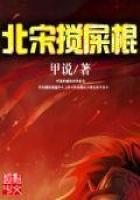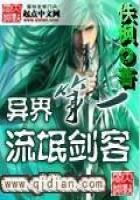LINCOLN AND JOHNSON NOT NOMINATED AS REPUBLICANS.
Mr. Lincoln had been elected President in 1860, distinctively as a Republican. In 1864, however, the conditions had changed. The war had been in progress some three years, during which the insurgents had illustrated a measure of courage, endurance, and a command of the engineries of successful warfare that had not been anticipated by the people of the North. It was seen that to insure the success of the Union cause it was imperative that there should be thorough unity and cooperation of the loyal people of all parties--that it was no time for partisan division among those who hoped ever to see a restored Republic--that it was necessary to lay aside, as far as possible, mere partisan issues, and to unite, in the then approaching campaign, upon a non-partisan, distinctively Union ticket and platform.
Mr. Lincoln had given so satisfactory an administration so wisely, efficiently, and patriotically had he conducted his great office, that he was on all sides conceded to be the proper person for nomination and election. The Convention of 1861 was not called as a Republican Convention, but distinctively as a Union Convention.
"The undersigned," so ran the call, "who by original appointment, or subsequent delegation to fill vacancies, constitute the Executive Committee created by the National Convention held at Chicago on the 10th day of May, 1860, do hereby call upon all QUALIFIED VOTERS WHO DESIRE THE UNCONDITIONAL MAINTENANCE OF THEUNION, THE SUPREMACY OF THE CONSTITUTION, AND THE COMPLETESUPPRESSION OF THE EXISTING REBELLION, WITH THE CAUSE THEREOF, by vigorous war, and all apt and effective means; to send delegates to a convention to assemble at Baltimore, on Tuesday, the 7th day of June, 1864, at 12 o'clock noon, for the purpose of presenting candidates for the offices of President and Vice President of the United States."The delegates met pursuant to this call. Hon. Edwin D. Morgan, of New York, Chairman of the Union National Committee, called the Convention to order, and Robert J. Breckinridge, of Kentucky, was chosen temporary Chairman. In the course of his introductory address, Mr. Breckinridge said:
Passing over many things which it would be right for me to say, did the time serve, and were this the occasion--let me add,--you are a Union party. Your origin has been referred to as having occurred eight years ago. In one sense it is true. But you are far older than that. I see before me not only primitive Republicans and primitive Abolitionists, but I see also primitive Democrats and primitive Whigs. * * * As a Union party I will follow you to the ends of the earth, and to the gates of death.
But as an Abolition party--as a Republican party--as a Whig party--as a Democratic party--as an American party, I will not follow you one foot.
Mr. William Dennison, of Ohio, was chosen President of the Convention. On taking the chair he said:
'In no sense do we meet as members or representatives of either of the old political parties which bound the people, or as the champions of any principle or doctrine peculiar to either. The extraordinary condition of the country since the outbreak of the rebellion has, from necessity, taken from the issues of these parties their practical significance, and compelled the formation of substantially new political organizations; hence the organization of the Union Party--if party it can be called--of which this Convention is for the purpose of its assembling, the accredited representative, and the only test of membership in which is an unreserved, unconditional loyalty to the Government and the Union.'
After perfecting its organization the Convention proceeded to ballot for a nominee for the Presidency, and Mr. Lincoln was unanimously nominated--the Missouri delegation at first casting its 22 votes for Gen. Grant, but afterwards changing them to Mr.
Lincoln, giving him the total vote of the Convention--506--on the first and only ballot.
Nominations for the Vice Presidency being next in order, Mr.
Lyman Tremaine, of New York, an old time Democrat, nominated Daniel S. Dickinson, another old time Democrat and a very distinguished citizen of that State. In his nominating speech Mr.
Tremaine again emphasized that this Convention was a Union, and not a partisan body, in these words:
'It was well said by the temporary and by the permanent Chairman, that we meet not here as Republicans. If we do, I have no place in this Convention; but, like Daniel S. Dickinson, when the first gun was fired on Sumter, I felt that I should prove false to my revolutionary ancestry if I could have hesitated to cast partisan ties to the breeze, and rally around the flag of the Union for the preservation of the Government.'
The Indiana delegation nominated Andrew Johnson, also a Democrat, and the nomination was seconded by Mr. Stone, speaking for the Iowa delegation.
In the earlier proceedings of the Convention there had seemed a disposition to exclude the Tennessee delegation, and Parson Brownlow, an old line Whig, being called on for a speech, evidenced in the course of his remarks the small part which partisan considerations were permitted to play in the purposes and proceedings of the Convention. He said:
'There need be no detaining this Convention for two days in discussions of various kinds, and the idea I suggest to you as an inducement not to exclude our delegation is, that we may take it into our heads, before the thing is over, to present a candidate from that State in rebellion, for the second office in the gift of the people. We have a man down there whom it has been my good luck and bad fortune to fight untiringly and perseveringly for the past twenty-five years--Andrew Johnson. For the first time, in the Providence of God, three years ago we got together on the same platform, and we are fighting the devil, Tom Walker, and Jeff. Davis, side by side.'
Mr. Horace Maynard, a conspicuous Republican of Tennessee, said:















